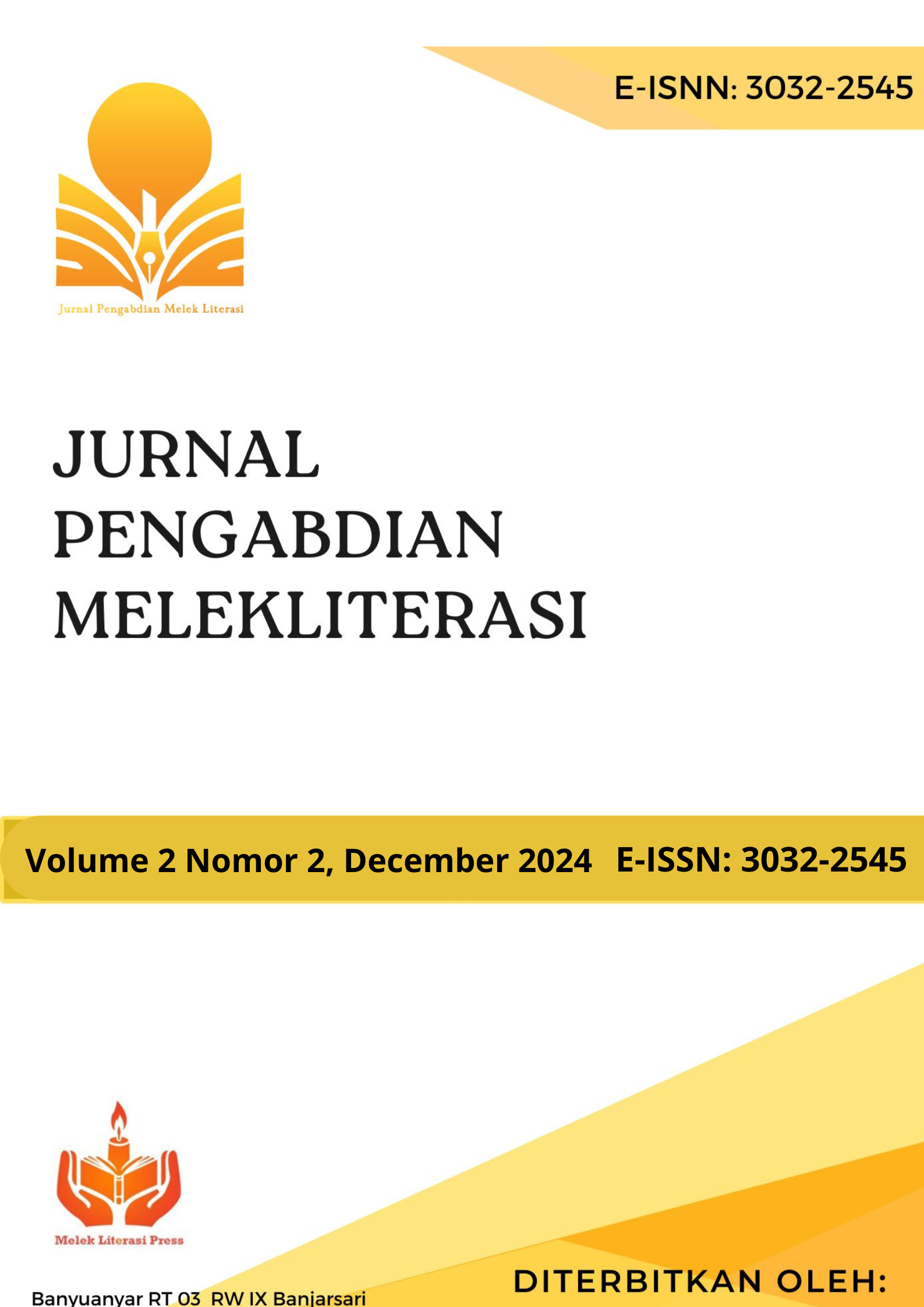PERAN BIMBINGAN KONSELING DI DESA DUKUH DALAM MENGATASI PENGARUH NARKOBA DAN JUDI ONLINE PADA GENERASI EMAS
Abstract
ABSTRAK
Peran bimbingan dan konseling sangat krusial dalam mengatasi pengaruh negatif narkoba dan judi online pada generasi muda. Seiring dengan meningkatnya aksesibilitas terhadap narkoba dan kemudahan judi online, generasi muda menjadi lebih rentan terhadap risiko kecanduan yang berdampak buruk pada kesehatan fisik, mental, serta aspek sosial dan akademik mereka. Bimbingan konseling bertujuan tidak hanya untuk membantu individu yang telah terlibat, tetapi juga untuk melakukan pencegahan melalui edukasi dan pengembangan keterampilan hidup yang sehat. Konselor memberikan dukungan emosional, membantu mengidentifikasi penyebab kecanduan, dan mengajarkan keterampilan pengelolaan diri untuk menghindari perilaku berisiko. Melalui pendekatan yang sistematis dan komprehensif, bimbingan konseling membantu generasi muda mengenali potensi diri, menemukan aktivitas alternatif yang positif, serta memberikan dukungan dalam proses pemulihan dari kecanduan. Dengan demikian, bimbingan dan konseling berperan penting dalam membentuk generasi muda yang tangguh dan mampu menolak pengaruh buruk narkoba dan judi online.
Kata Kunci: peran Bimbingan konseling , narkoba, judi online, generasi muda
ABSTRACT
The role of guidance and counseling is crucial in overcoming the negative influence of drugs and online gambling on the younger generation. Along with the increasing accessibility to drugs and the ease of online gambling, young people are becoming more vulnerable to the risk of addiction that adversely affects their physical, mental health, as well as social and academic aspects. Guidance counseling aims not only to help individuals who have been involved, but also to prevent through education and development of healthy life skills. Counselors provide emotional support, help identify the causes of addiction, and teach self-management skills to avoid risky behaviors. Through a systematic and comprehensive approach, guidance and counseling helps young people recognize their potential, find positive alternative activities, and provide support in the recovery process from addiction. Thus, guidance and counseling plays an important role in shaping a resilient young generation that is able to resist the bad influence of drugs and online gambling.
Keywords: role of guidance counseling, drugs, online gambling, young generation
References
REFERENCES
American Psychological Association. (2013). Diagnostic and Statistical Manual of Mental Disorders (5th ed.). Washington, DC: American Psychiatric Publishing.
Corey, G. (2012). Theory and Practice of Counseling and Psychotherapy (9th ed.). Belmont, CA: Brooks/Cole
Marlatt, G. A., & Donovan, D. M. (Eds.). (2005). Relapse Prevention: Maintenance Strategies in the Treatment of Addictive Behaviors. New York: The Guilford Press.
Marlatt, G. A., & Witkiewitz, K. (2005). Addictive Behaviors: New Readings on Etiology, Prevention, and Treatment. Washington, DC: American Psychological Association.
Mayers, J. L., & Andrews, T. R. (2006). Counseling and Addiction: Implications for Practice. Journal of Counseling and Development, 84(3), 322-333.
Miller, W. R., & Rollnick, S. (2012). Motivational Interviewing: Helping People Change (3rd ed.). New York: The Guilford Press.
Marlatt, G. A., & Witkiewitz, K. (2005). Addictive Behaviors: New Readings on Etiology, Prevention, and Treatment. Washington, DC: American Psychological Association.
Miller, W. R., & Rollnick, S. (2012). Motivational Interviewing: Helping People Change (3rd ed.). New York: The Guilford Press.
National Institute on Drug Abuse. (2018). Drugs, Brains, and Behavior: The Science of Addiction. Bethesda, MD: National Institutes of Health.
Prochaska, J. O., & DiClemente, C. C. (1983). Stages and Processes of Self-Change of Smoking: Toward an Integrative Model of Change. Journal of Consulting and Clinical Psychology, 51(3), 390–395.
Rogers, C. R. (1951). Client-Centered Therapy: Its Current Practice, Implications and Theory. Boston: Houghton Mifflin.
Santrock, J. W. (2016). Educational Psychology (6th ed.). New York: McGraw-Hill.






